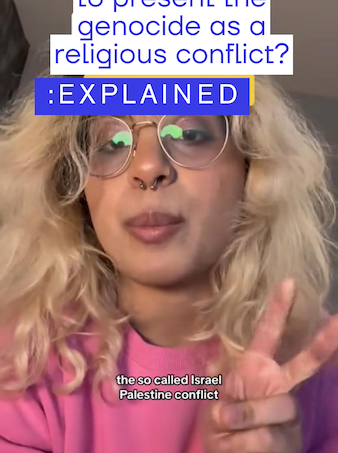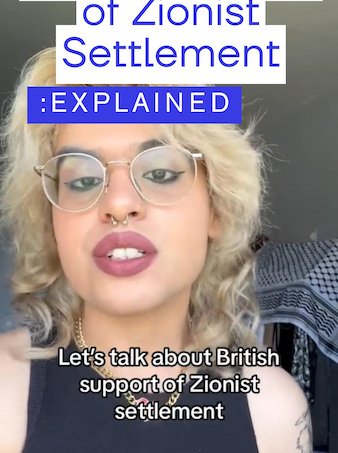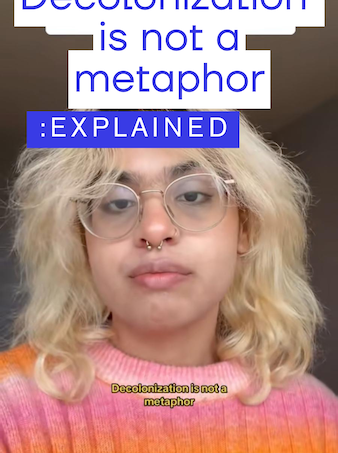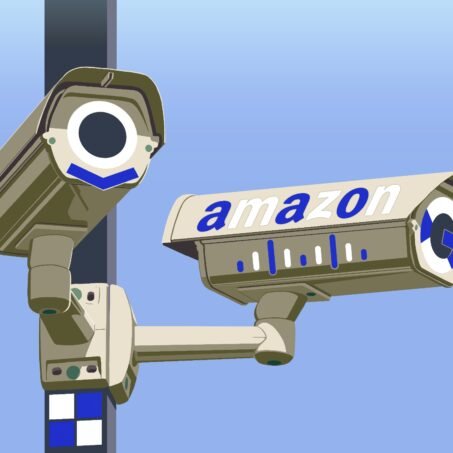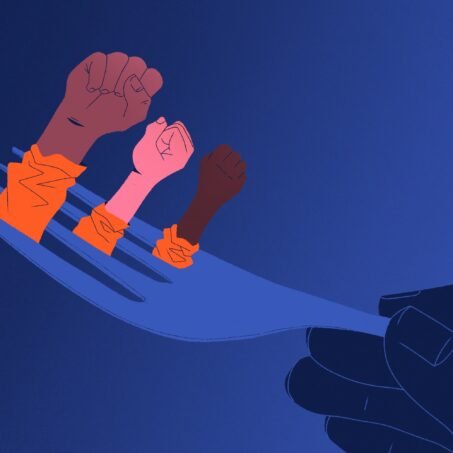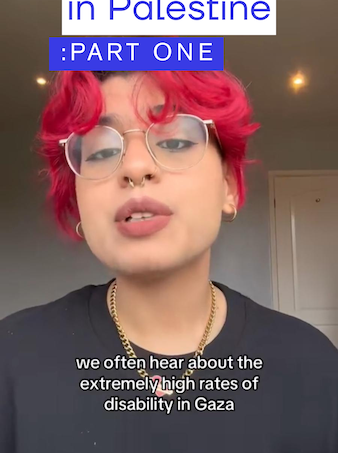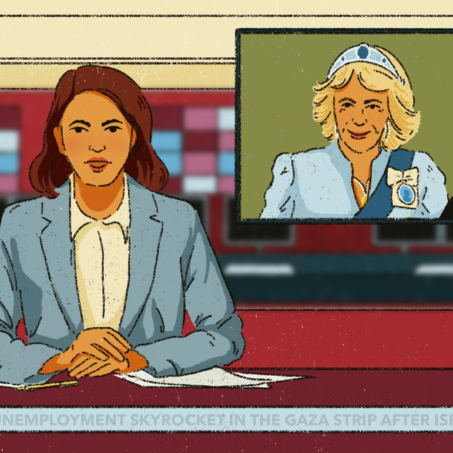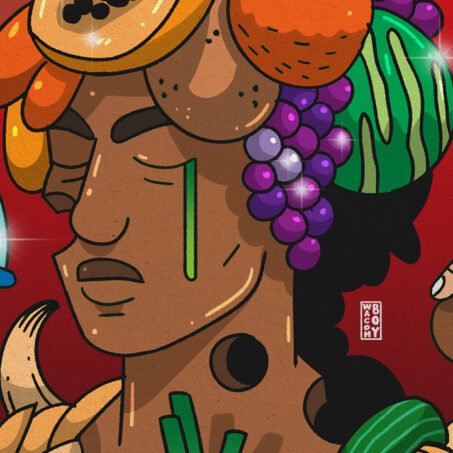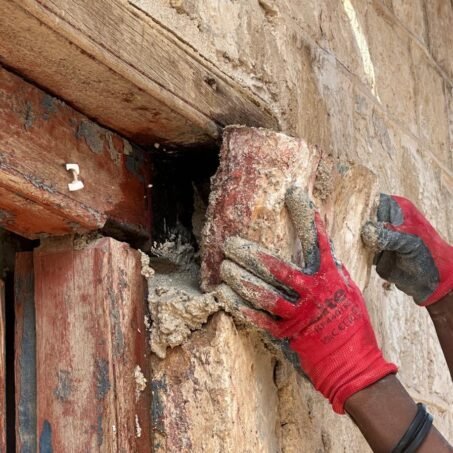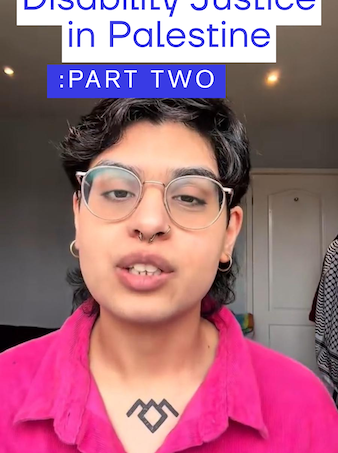What is settler colonialism and how does it differ from colonialism?
Much of the time in public discourse, “colonialism” and “settler colonialism” (and sometimes even “imperialism”) are used interchangeably. These terms are of course very closely linked, but there are some differences to take into account. Each of them can also be defined differently depending on your political or theoretical perspective. As such, defining these terms is not a precise science, and there is often significant debate.
Nonetheless, it can be useful to draw a distinction between colonialism and settler colonialism. Broadly speaking, colonialism can be seen as the subjugation, domination and exploitation of another people, their land and their resources. Settler colonialism, meanwhile, is one type of colonialism, or one way in which colonial regimes can operate.
Under settler colonialism, the colonised population is not just subjugated: it is physically removed and then replaced by a settler population. This physical removal can occur through displacement, forced expulsion, and/or actual extermination and genocide. In settler colonial contexts, the colonised population, or the Indigenous inhabitants, are seen as obstacles in the way of control of the land and its resources. For this reason, settler colonialism is often seen as the most violent and even deadly form of colonial rule.
Most fundamentally, therefore, we can distinguish settler colonialism from other forms of colonialism in that it seeks to eliminate and replace Indigenous societies, rather than solely exploiting Indigenous populations.
Global examples of settler colonialism
Historical examples of settler colonial projects, or what are sometimes described as settler societies, include the Dutch in South Africa, the French in Algeria, the Italians in Libya, the British in Kenya, and perhaps most prominently, the range of European powers which colonised the Americas, including the Portuguese, the Spanish and the British.
In the case of Libya, for example, in the 1920s the fascist Italian government undertook a campaign of ethnic cleansing in eastern Libya to make way for Italian settlers, forcibly relocating over 100,000 Libyans to concentration camps and killing tens of thousands. The British colonisation of Kenya involved the forced displacement of indigenous farmers and herders onto infertile land and/or forcing them to work on British-owned farms and plantations. This colonial regime saw massacres, ethnic cleansing and use of concentration camps.
It is important to bear in mind that not all settler colonial projects operate in the same way or “look” the same: some are more “exterminationist” than others, and the precise relationship between settlers and Indigenous populations can vary.
Are there any settler colonial states that still exist?
Many scholars of settler colonialism see countries such as the United States, Canada and Australia as still settler colonial states. They argue that the settler colonial processes which formed these societies and their structures of governance still persist to this day, due to the fact that, by virtue of Indigenous resistance, ongoing claims to Indigenous sovereignty, and the persistence of Indigenous cultures and ways of knowing, the settler colonial project continues. We can contrast this with a case like that of Algeria, where a process of decolonisation actually forced the departure of the settler society.
In the United States and Canada, for example, or as Indigenous peoples call it, Turtle Island, expropriation of Indigenous lands for infrastructure projects continues, threatening Indigenous communities and continuing to erode Indigenous sovereignty. In the US, around 35% of the country’s fossil fuel reserves are located directly on or near Indigenous lands. Areas such as North Dakota, New Mexico and Alaska are homes to significant communities of Indigenous peoples and sites of major oil and gas infrastructure.
Imprisonment is another serious issue disproportionately impacting Indigenous communities in contemporary settler colonial societies, with Indigenous communities vastly overrepresented in prisons. In Canada, for example, a 2020/2021 study found that on an average day that year there were 42.6 Indigenous people in provincial custody per 10,000 population, compared to 4.0 non-Indigenous people.
Palestine: a case study
And then we come to the case of Palestine. Israel can be seen as an archetypal settler colonial state, hearkening back to the high colonial period when settler colonialism existed in its most overt form.
Israel is a settler colonial state because it was, and is, predicated on a political project – Zionism – which seeks to establish exclusive sovereignty and control over a territory which was already populated by an existing population: the Indigenous Palestinians. The Zionist project seeks to establish exclusive Jewish sovereignty over the land of historic Palestine by replacing the Indigenous Palestinian population with a Jewish population, through expulsion, displacement and even genocide.
What impact does settler colonialism tend to have on Indigenous culture?
Because settler colonial projects are based on the removal and replacement of an Indigenous population, this means there is also an exterminationist attitude towards the culture of that population as well. The culture of the Indigenous population can pose a threat to the settler colonial project because it may challenge the claims of settler society, and it gives Indigenous populations a sense of who they are, their history and ancestry, their ties to the land, and their ties to each other. These can all act as drivers of resistance.
In the case of Palestine, Zionism and the Israeli state have historically set their sights on Palestinian culture and history and its various expressions, from centres of knowledge production such as universities and schools, to sites of memory like archives and libraries, to historical and heritage sites. Some have used the term “cultural genocide” to describe this process.
What does an anti-imperial framework of resistance look like?
An anti-imperialist framework is vital to understanding settler colonial projects because without it we cannot locate settler colonialism within wider dynamics of global power. For example, Israel is a settler colonial state, but it is impossible to understand the emergence of Israel and its role in the Middle East without understanding its relationship to global imperial powers. Zionism, and the state of Israel, has always sought to attach itself to imperial hegemons: initially the British, for example, and particularly after the late 1960s and 1970s, the United States.
The British saw in the Zionist project an opportunity to entrench their influence in the increasingly significant Middle East region, and so formalised their support for Zionism in the 1917 Balfour Declaration which they then put into practice when the British Mandate for Palestine was established in 1920. The US, meanwhile, sees Israel as a regional enforcer against those states which challenge US interests, such as the Arab nationalist states during the Cold War.
Anti-imperialist resistance today, therefore, requires understanding how US (and more broadly, Western) power functions, and where and how Israeli colonial rule over Palestinians fits into that and the role of Israel in the wider Middle East region.
Anti-imperialist resistance for those based in countries such as the United States and Britain requires opposition to Western-backed and Western-led wars, opposition to economic sanctions as forms of economic warfare against entire populations, and opposition to Western violations of other countries’ sovereignty and the ability of the populations of these countries to determine their own destiny.
What ways have communities resisted this/are still resisting this?
The way in which we resist these forms of power depends on where we are. In the Middle East itself, protestors in countries such as Jordan and Egypt have been voicing opposition to their governments’ subordination to the United States and Israel, calling for the dissolution of security agreements and economic ties.
Across Europe and North America, protestors have been taking to the streets for months and students have been carrying out occupations, sit-ins and encampments to call for breaking ties not just to Israeli institutions but to arms manufacturers and fossil fuel producers.
Prior to 7th October, the US provided around $3 billion in military aid to Israel every year. Since 7th October, the Biden administration has approved over 100 additional weapons sales. Germany, meanwhile, provided around $340 million in military aid to Israel in 2023, with a drastic increase from October. Challenging such arms flows and arms industries are a vital component in opposing Western imperial power.
And of course, most significantly, Palestinians themselves have been waging not just an anti-colonial but also an anti-imperialist struggle for decades, forging ties with similar struggles elsewhere, from the Vietnamese struggle for liberation to the Black freedom movement in the US.
What does international solidarity look like: How can we use the framework of anti-imperialism to mobilise our resistance?
We can use the framework of anti-imperialism to understand where our countries fit in within the international order and strategise accordingly. For example, in Europe and North America, opposition to wars either led by or supported by Western countries is paramount. It is also important more broadly to challenge the role of key Western countries in global arms proliferation.
There are many other issues to organise around: the climate crisis, the role of imperialism in climate catastrophe, and green imperialism; unequal trade agreements and a global economic order which undermines the development of countries across Asia, Africa and Latin America; and the key role that major Western powers play in supporting and propping up violent, undemocratic and repressive states.
Forging links with movements and struggles around the world is key, in building strength through cooperation, targeting vital centres of power, and increasing our knowledge of different contexts and movements and learning from them.
Why is the language of settler colonialism so important?
In the case of Palestine, the framework of settler colonialism helps us to move away from simply describing what is happening to understanding why it is happening and what the key drivers are.
Settler colonialism allows us to recognise the significance of land and resources in driving Israeli policy and the imperative that the Israeli state sees in displacing and dispossessing the Palestinian population, and even physically destroying the Palestinians as a national group, in order to exercise full control over as much of that land as possible.
75 years after the establishment of the state of Israel, its expansionist drive continues to swallow up Palestinian land. After 7th October, the largest displacement of Palestinian Bedouins since 1972 took place in the occupied West Bank. Eight entire villages, with 472 people, were displaced in less than two weeks in October, while 6 other villages were partially depopulated. Even before October, the UN was sounding the alarm on settler violence and the rate of displacement and ethnic cleansing in the West Bank.
How does settler colonialism impact the environment?
Settler colonial projects often include drastic levels of ecological destruction because access to land, frequently for purposes of natural resource exploitation, is paramount. Settler ideology and settler societies tend to have a different way of viewing the land and relating to it.
The land exists for settlement and exploitation. Indigenous populations, because of their historic attachment to the land and different ways of organising their societies, often see themselves as custodians and caretakers of the land, and the land and ecosystem are seen to provide sustenance.
The very process of Israeli colonial rule is an ecological catastrophe. Israel has destroyed over 1 million olive trees in Palestine since 1967, which harms both ecosystems and Palestinian farmers. Israel has also destroyed hundreds of hectares of Palestinian crops by spraying polluting herbicides over farmlands, leaving already vulnerable populations without adequate food. In the Gaza Strip, before 7th October, Israel’s blockade of the territory had created a situation where 97% of the water was unsafe to drink or use for irrigation. Since the blockade prevented building materials from entering Gaza and water treatment plants could not be repaired, untreated sewage was left to flow into the Mediterranean Sea daily.
From settlement expansion and settler violence, which commonly includes uprooting ancient olive trees, to the theft of precious resources like water, to the Apartheid Wall and land grabs, the violence of the Israeli state includes violence against nature.
What can you do?
Organisations to follow:
- Makan
- Decolonise Palestine
- BDS Movement (and see their page on settler colonialism and Palestine)
Useful articles:
- “Israel is a settler colony, annexing native land is what it does”, by Muhannad Ayyash
- “Israeli Apartheid: Tool of Zionist Settler Colonialism”, by Al-Haq
- “The Continuation of Zionist Settler Colonialism”, by Jamal Nabulsi
- “Settler colonialism is not an ‘academic fad’”, by Somdeep Sen
- “Palestine Action: Resisting Imperialism From Within”, by Ethan Murphy
- What is Zionism?



